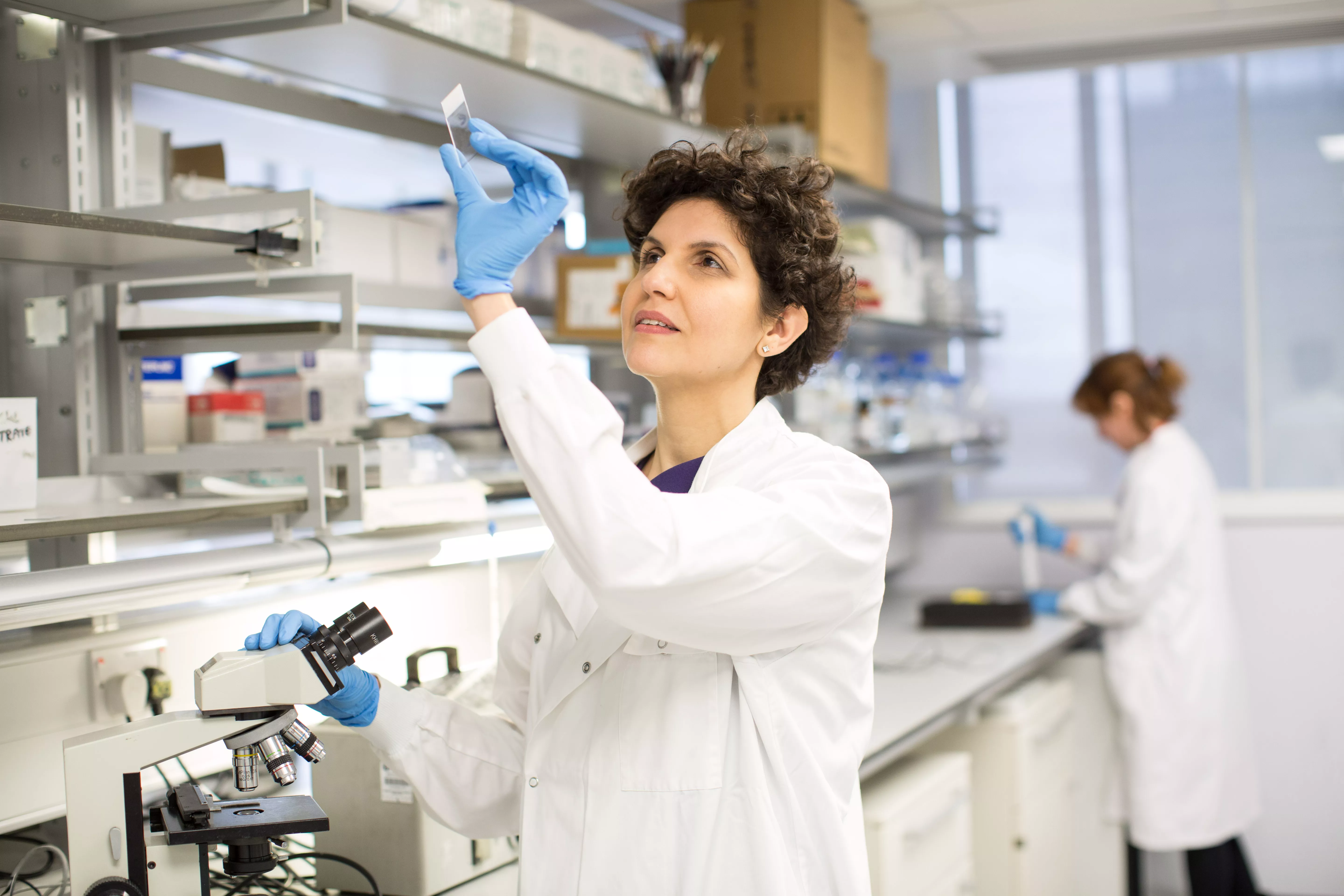
In our new series we take a look at some of the exciting diabetes research developments announced recently, and what the findings could mean for people living with or affected by diabetes.
Ageing better with type 1 diabetes
The life expectancy of people living with type 1 diabetes has increased worldwide since the 1990s. Not only are people with type 1 living longer but they are also spending more years in good health.
Researchers in China looked at the health outcomes of people aged 65 and over living with type 1 diabetes from 204 countries in 2019, and compared this with data from 1990.
They discovered that the number of older adults living with type 1 diabetes has increased by 28%, and that the number of deaths due to type 1 diabetes in older people has decreased by 25%.
The number of years older people with type 1 spend living in poor health has also decreased. People are experiencing fewer diabetes complications, especially life-threatening ones, than thirty years ago.
These shifts towards longer and healthier lives for people with type 1 diabetes are likely due to improvements in treatment and care over the years.
However, the study revealed that improvements in health outcomes for older people with type 1 diabetes depended on where they lived, with more people with type 1 diabetes surviving to older age in high-income countries than those in lower income countries.
The researchers also found that managing blood sugar levels remains a challenge for many older people with type 1. We know there’s not enough research into the specific needs of older people with diabetes, that’s why we’re calling for research proposals to close this knowledge gap.
Putting type 2 diabetes on pause
Prediabetes means that your blood sugars are higher than usual, but not high enough for you to be diagnosed with type 2 diabetes. It also means that you are at high risk of developing type 2 diabetes in the future.
New research has shown that the longer a type 2 diabetes diagnosis can be held off in people with prediabetes, the more likely they are to live longer and healthier lives.
Researchers from China analysed data from 540 people diagnosed with prediabetes, who had been followed up for 30 years after participating in a 6-year intervention trial to prevent a diagnosis of type 2 diabetes. They compared the long-term health outcomes of those who had progressed to type 2 diabetes at 2, 4 and 6 years after their initial prediabetes diagnosis.
They found that people who held off a type 2 diabetes diagnosis for 4 years or more had lower risks of developing cardiovascular problems such as heart attacks, stroke and dying prematurely, than those who progressed to type 2 diabetes within the first 2 years.
These findings are a reminder of the importance of getting support to lower your risk of type 2 diabetes if you have a prediabetes diagnosis. And that the quicker you act, the more likely you are to improve your long-term health outcomes.
Getting better acquainted with bugs in your gut
The microbes living in our gut, including bacteria and fungi, are collectively known as the gut microbiome. They produce molecules and chemical messengers that can affect our health, and could have a hand in the development of insulin resistance and type 2 diabetes.
But because there are millions of microbes living in our gut and each person hosts their own unique communities, we have a lot to learn about how the gut microbiome is linked with type 2 diabetes.
In the largest study of this kind to date, researchers from the United States examined the gut microbiome of people with type 2 diabetes, prediabetes and those with normal blood sugar levels from different regions across the world.
The team looked for differences in the make-up of the microbiome in people with prediabetes, type 2 diabetes and without diabetes, and then homed in on specific microbes that were linked to type 2 diabetes and explored what they do in the gut. For example, they found that one of these microbes produces a molecule that has previously been found to be linked to a higher risk of obesity and type 2 diabetes. and another that could change how the body turns sugar into energy.
The researchers also found some clues that viruses could be infecting certain types of gut bacteria and speculated that this could be driving changes to the gut microbiome that are linked to type 2 diabetes risk. They were surprised by this discovery and said much more work is needed to understand what is going on.
While the study showed that there are variations in the gut microbiome between those with and without type 2 diabetes, it did not show that these differences caused type 2. Work continues to better understand the role of the gut microbiome in type 2 diabetes, and whether interventions to change the gut microbiome could be a way to reduce risk of developing type 2.
